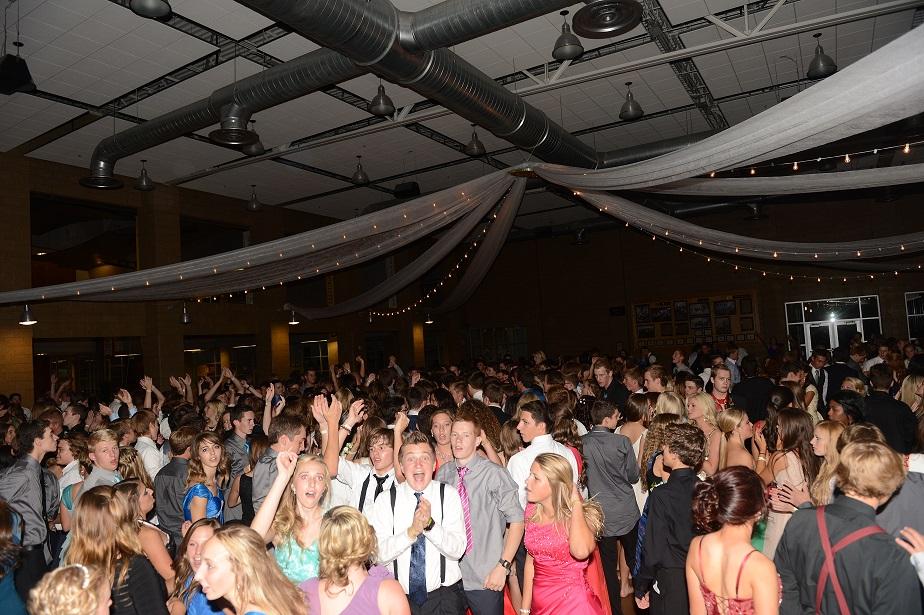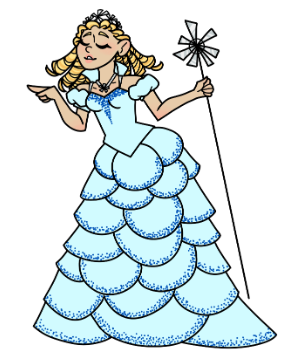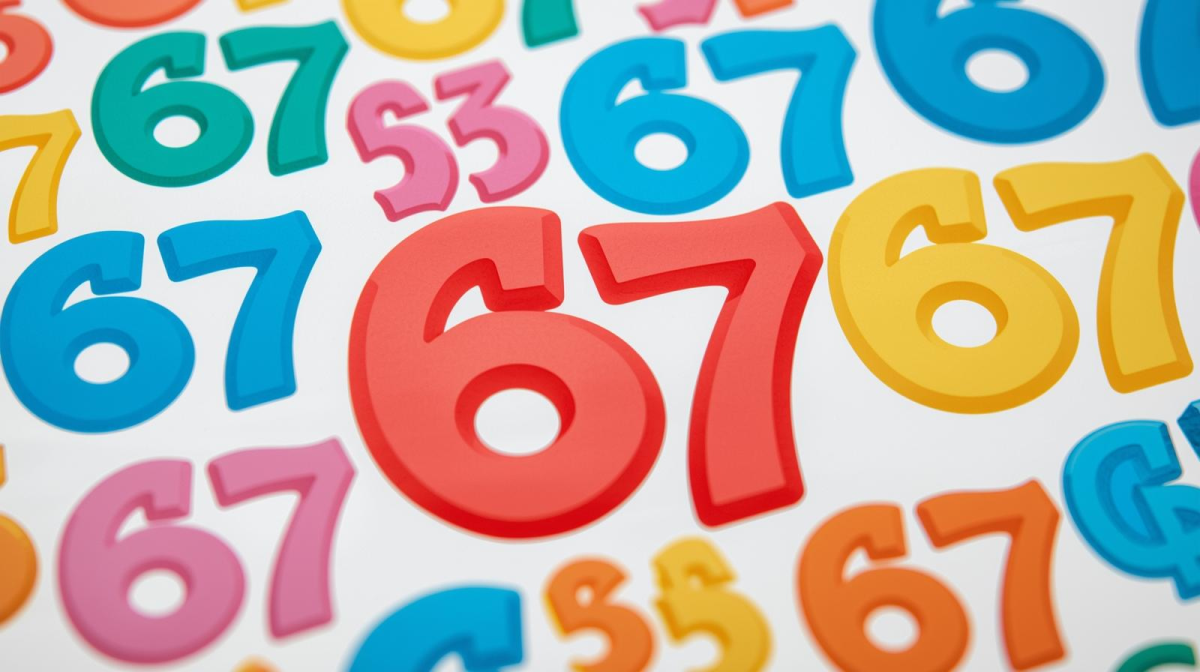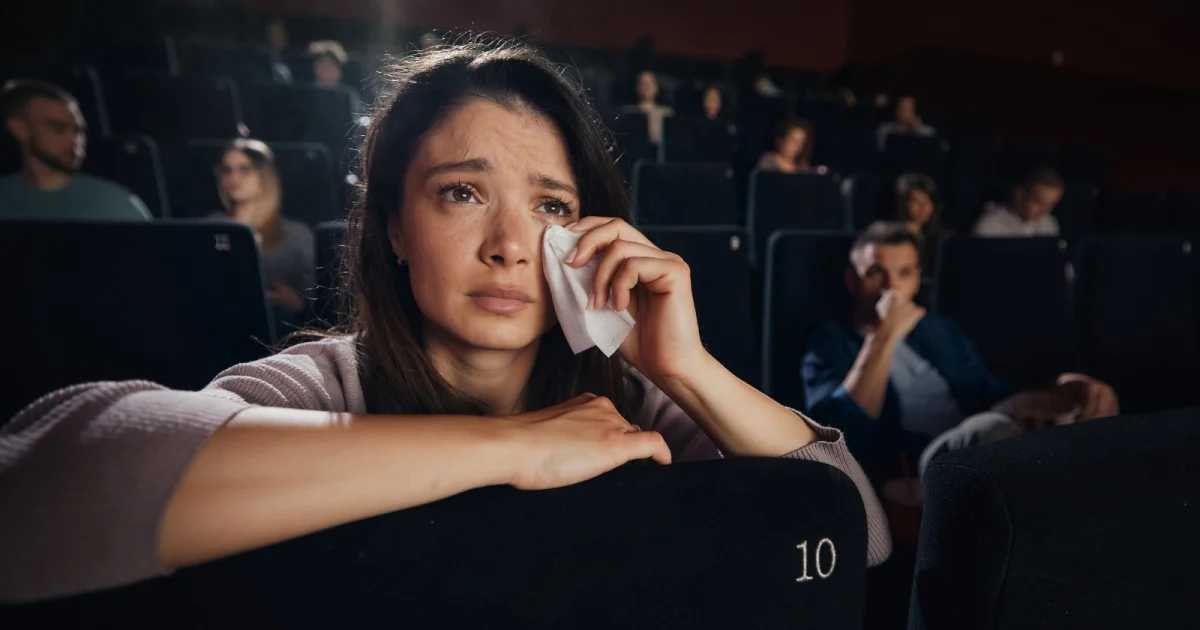Movies have an unparalleled ability to tap into our emotions. Whether we’re watching an uplifting moment of triumph or a heart-wrenching loss, films often provoke a deep emotional response. One of the most natural reactions we have to good storytelling is crying, and yet for many, crying during a movie can feel really embarrassing or even shameful. But why should it be? Crying during movies is normal, and it’s a sign of emotional openness and connection, and it deserves to be welcomed. Crying helps strengthen human connections, by allowing people to share vulnerabilities, and
fostering deeper connections. At its core, cinema is a form of storytelling. Stories have always been a way for humans to portray emotions, understand experiences, and connect on a deeper level with
others. When we watch a movie, we are invited to view the characters’ lives. Their joys, sorrows, and struggles temporarily become ours. This emotional investment in fictional characters is proof of the power of storytelling through film. When a character’s pain or joy moves us to tears, we’ve let ourselves be vulnerable to the story. In a world where emotional vulnerability is often seen as a weakness, crying during movies is one of the few moments to express deep emotions in a safe, mostly
non-judgmental space. Crying during a movie is often proof of empathy. It means we can feel the emotions of others, even if they’re fictional. Empathy is one of the cornerstones of human
connection, and movies and TV shows provide a space for us to practice it. When we cry over a character’s hardships or triumphs, we are showing our ability to step outside of ourselves and experience the emotions of someone else. This is a powerful tool for our personal growth and understanding. The ability to cry for characters and their journeys can expand our ability to relate to the struggles and experiences of real people in our lives. It’s not a sign of weakness but of a rich
emotional life and a capacity for understanding. For many, crying during a movie is a relieving experience. Life can be overwhelming, and we often push down our emotions to navigate the day-to-day pressures of school, relationships, and responsibilities. Movies offer a safe outlet for those suppressed feelings. Crying during a movie allows for emotional release, helping to relieve stress
and even improve your mood. This kind of release can be especially beneficial for people who find it difficult to express their emotions in other areas of their life. Watching a character go through an emotional arc. Permits us to feel deeply, without fear of judgment. Despite the benefits, many people still feel uncomfortable crying during movies, especially in public settings like theaters. This discomfort is usually linked with societal expectations, where emotional expression, especially for men, is seen as a sign of weakness. However, the idea that crying is naturally “weak” is outdated and limiting.
The reality is, that expressing emotions openly is an important aspect of your mental health. Normalizing crying during movies can help break the stigma around emotional sensitivity in general.
When we view crying as a natural, healthy response to emotional stimuli, we create space for comfort and ease. Rather than suppressing our tears, we should celebrate them as a sign that we are connecting with the art and stories that prove we’re human. Crying during movies also encourages a sense of community. When we watch a movie together, whether with friends, family, or even strangers in a theater, and feel moved to tears. We share a collective emotional experience. That sense of shared fragility can bring people closer together. It’s a reminder that we’re not alone in our feelings and that
others are also deeply moved by the human experiences shown on our TV screens. In a world that often prizes impassiveness and emotional restraint, crying during movies should be seen not only as normal but as healthy and empowering. It shows empathy, emotional release, and storytelling’s ability to move us emotionally. Rather than hiding our tears, we should embrace them as a natural, human response to art. So next time you find yourself crying during a movie, don’t feel embarrassed, feel grateful that you can connect so deeply with the world around you and the stories being told in it.





























